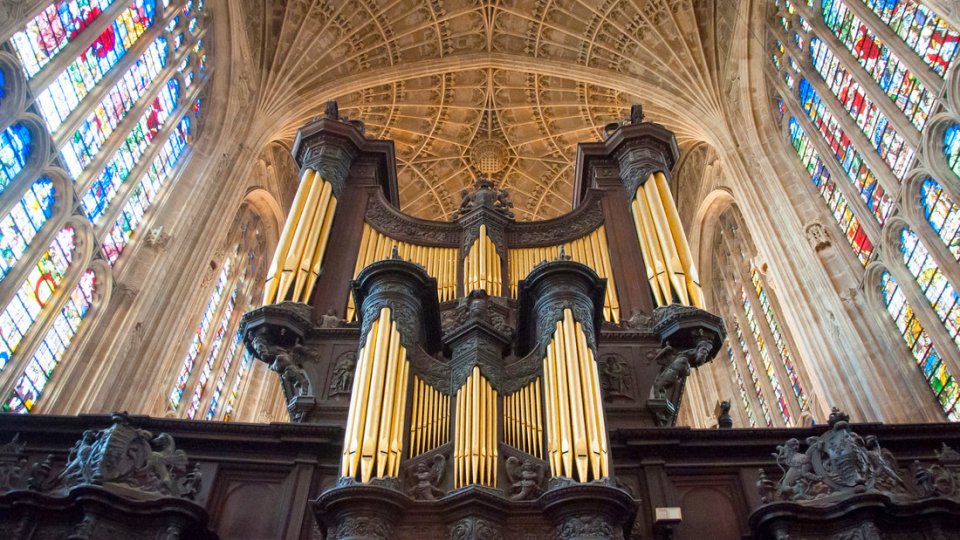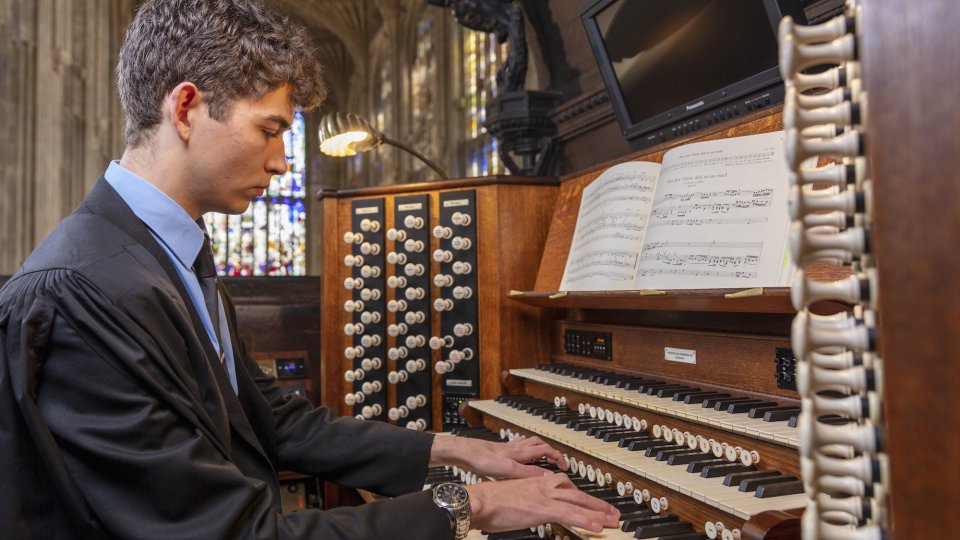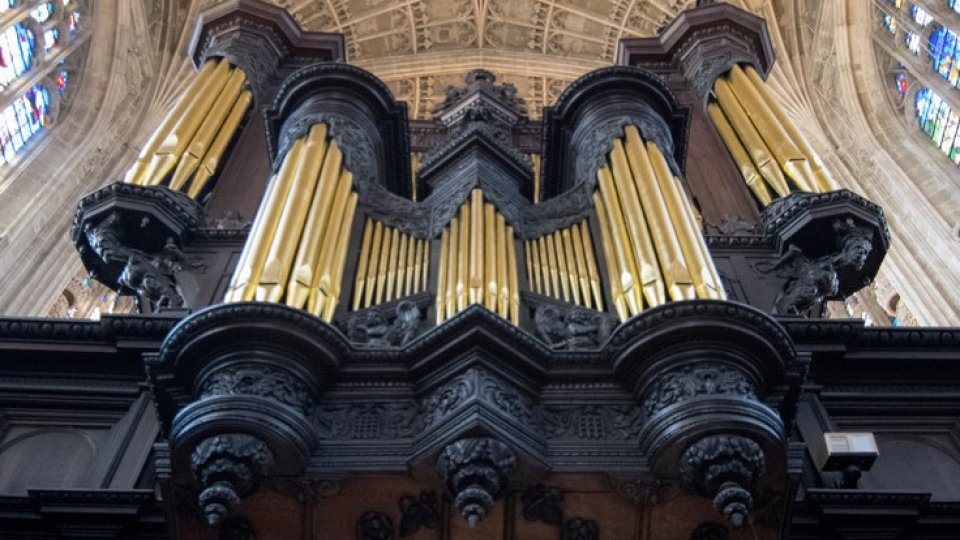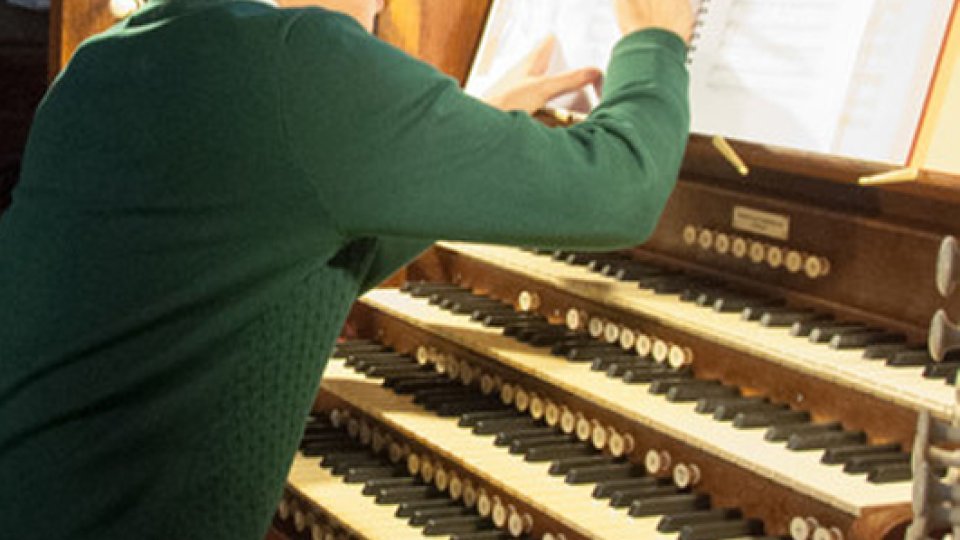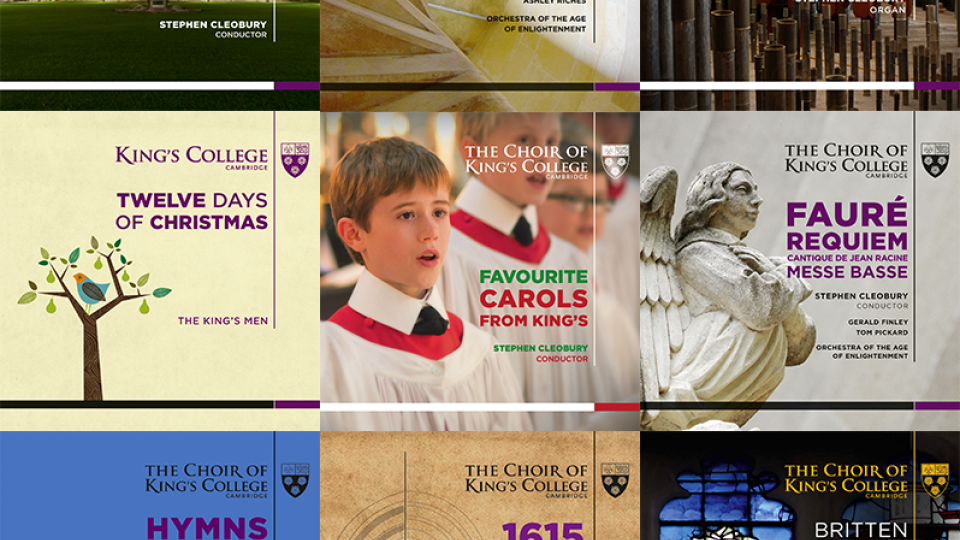The organ scholarship at King's is an excellent preparation for many different career paths, particularly those in the musical profession. In the field of cathedral and church music, former Organ Scholars currently direct the music at Durham, Gloucester and Norwich Cathedrals, Trinity College Cambridge, Magdalen College and New College Oxford, and the Temple Church in London.
A number, such as Sir Andrew Davis and Richard Farnes, go into conducting careers, while others, such as Simon Preston, Thomas Trotter, David Briggs and David Goode, have forged international careers as solo players. Some of the most recent holders are to be found in assistant positions at Westminster Cathedral and Durham Cathedral.
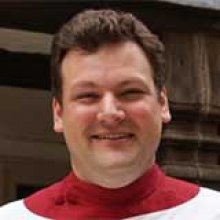
Organ Scholar 1993-1996
"I had just come down from King's College, Cambridge, where I had been the organ scholar, and I sought a church organist's position that would allow me to work with a boys' choir as well as continue my organ studies in Paris. What I had come from was a life-changing experience: making music at King's was an extraordinary privilege.
To play that organ every day, and to be the last one out of (or sometimes the first one in to) the beautiful fan-vaulted chapel was incredible.
The matchless acoustic, the choir and the wonderful performance opportunities were all part of four years that left an indelible impression on my life."
(Extract from The Organ Magazine, 2005)
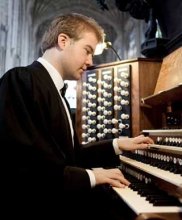
Organ Scholar 2010-2013
"As I look back on my three years as Organ Scholar, I remain sure they were the best of my life thus far. Seldom is an undergraduate musician afforded the opportunity to perform regularly in one of the most beautiful buildings on earth, with the expert guidance and direction from a conductor like Stephen Cleobury.
In conjunction with the academic demands of the Cambridge Tripos, Organ Scholars at King’s continue to be provided with the best in intellectual and musical training, equipping them for the careers of their choosing.
In my time at King’s I was gladly overwhelmed with an enormous variety of musical opportunities. With morning chorister practices and the rigor of daily services, there is rather a lot to be getting on with! In preparing for regular services, one learns the art of efficient and solid preparation, as well as the important lessons of intense concentration. Flexibility is important too, as time is of the essence in afternoon rehearsals.
The pressures of regular performances are offset by around-the-clock access to the magnificent King’s organ. To this day, few musical experiences have been more gratifying than playing Herbert Howells’ Evening Service ‘Collegium Regale’ on the organ (and with the choir) for which it was composed.
Outside of Evensong, Organ Scholars get plenty of time away from the psalms, anthems and canticles. I had liberty to explore a wide range of solo organ repertoire for termly organ recitals, setting in motion my long standing passion for the music of Sweelinck and the North German school.
In playing continuo for the Choir’s many performances of Bach and Handel oratorios, I had the privilege of performing alongside groups such as the Academy of Ancient Music. Both experiences were key in my decision to pursue postgraduate studies in historical performance at Oberlin Conservatory.
At the piano, I learned a great deal from some of the country’s top singers and vocal coaches in accompanying the Choral Scholars in singing lessons and master-classes. In being an active member of the King’s College Music Society, I had the opportunity to keep up my skills as a harpist, performing with the College orchestra and King’s Voices in College concerts.
As I have reflected on my own experiences, and in looking to the examples of Organ Scholars past, I have come to realise that there is no such thing as the ‘typical’ Organ Scholar at King’s. Among us there are pianists, conductors, composers, recitalists and academics.
As undergraduates, not all of us read Music for our degrees. I read history and wrote my dissertation on the Country Music industry and the 1968 US presidential election. Since leaving King’s, I’ve spent two years studying early music and I will be pursuing a master’s degree in harp performance at the Juilliard School in the autumn.
Such may seem a far cry from the common perception of the organ scholarship as simple preparation for a career in the Cathedral music world, but for me it has been wholly continuous with the open and multifaceted atmosphere that makes organ scholarship thrive.
Under Stephen Cleobury’s stewardship, Organ Scholars are continually emboldened to follow their many varied intellectual and musical vocations, whatever those may be. Being instilled with immense discipline and dedication, the hallmark of the King’s Organ Scholar is not simply an affinity for the organ, but rather a passion for excellence."
|
1931 |
Percy Higgs (first award) |
|
1935 |
Douglas Guest |
|
1939 |
David Willcocks |
| 1947 | Garth Benson |
| 1951 | Hugh McLean |
| 1955 | Richard Popplewell |
| 1958 | Simon Preston |
| 1961 | John Langdon |
| 1963 | Andrew Davis |
| 1966 | John Wells |
| 1968 | Ian Hare |
| 1971 | James Lancelot |
| 1973 | Francis Grier |
| 1976 | Thomas Trotter |
| 1978 | Adrian Partington |
| 1979 | John Butt OBE |
| 1981 | David Briggs |
| 1983 | Richard Farnes |
| 1985 | Stephen Layton |
| 1987 | Peter Barley |
| 1989 | Christopher Hughes |
| 1991 | David Goode |
| 1993 | James Vivian |
| 1995 | Robert Quinney |
| 1997 | Benjamin Bayl |
| 1998 | Thomas Williamson |
| 2000 | Daniel Hyde |
| 2001 | Ashley Grote |
| 2003 | Tom Winpenny |
| 2004 | Oliver Brett |
| 2006 | Peter Stevens |
| 2007 | Tom Kimber |
| 2009 | Ben-San Lau |
| 2010 | Parker Ramsay |
| 2012 | Douglas Tang |
| 2013 | Tom Etheridge |
| 2014 | Richard Gowers |
| 2016 | Henry Websdale |
| 2017 | Donal McCann |
